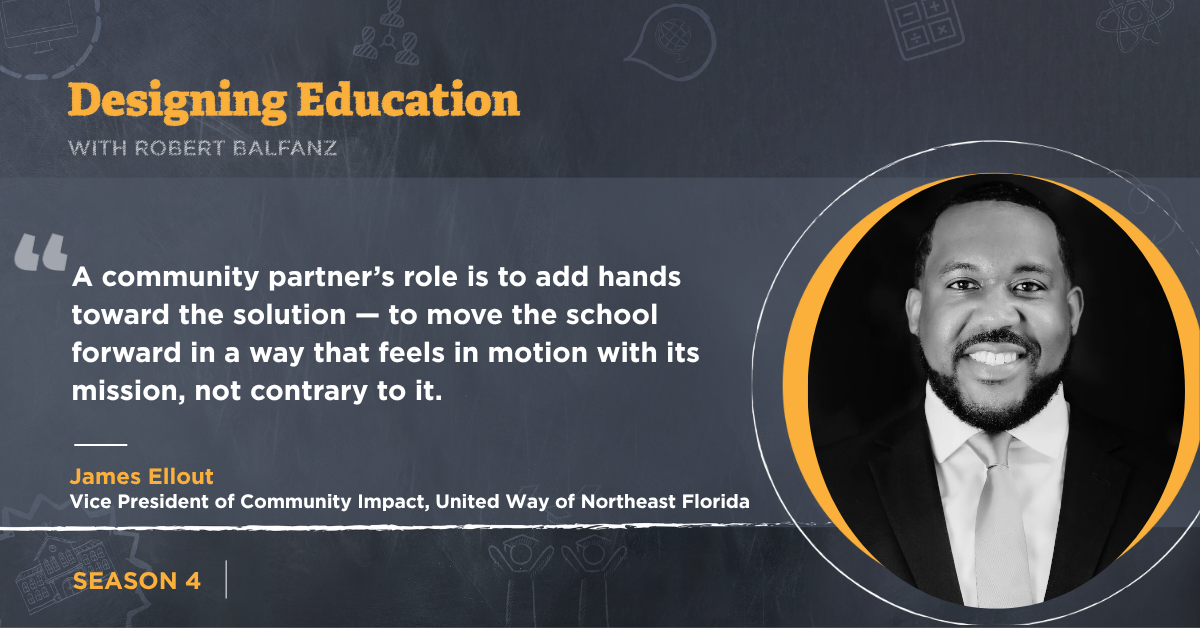
Designing Education
A podcast hosted by Robert Balfanz, director of the Everyone Graduates Center.
Conversations with leaders in education from around the country on bold new ideas and research-based strategies for redesigning American education to engage all students more effectively and equip them for the challenges of today’s workplace and world.
Season 4, Episode 4
Strengthening Schools Through Community Collaboration
In this episode, James Ellout, Vice President of Community Impact at United Way of Northeast Florida joins Dr. Robert Balfanz to talk about how community organizations can partner with schools to increase student success.
Four years after the height of the pandemic, schools are still facing high rates of absenteeism, declining academic achievement, and growing well-being challenges. These needs are often too great for schools to address alone.
James shares how United Way of Northeast Florida is helping bring community partners and schools together to expand capacity, provide timely supports, and ensure that every student has the opportunity to thrive.
Listen now to hear how these partnerships are helping schools reimagine what it takes to support all young people on the path to success.
Season 4, Episode 4 | 30:00 min
Miss Any Episodes?
Catch up on any Designing Education episodes you may have missed from our past three seasons!
